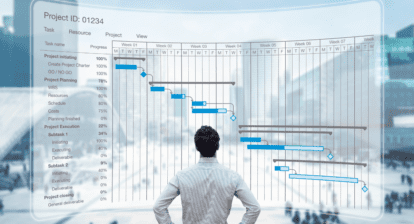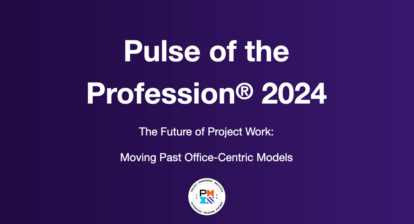
As a project manager, you have a demanding role. With multiple tasks, deadlines, steering committee demands, and team members to oversee, there is a lot on your plate at any given moment, and it is natural to feel overwhelmed. If you’re among the 85% of project managers juggling multiple projects simultaneously, it’s too easy for the work to pile up. If you struggle to stay on top of everything, you may wish there were more hours in a day to complete everything.
According to the Project Management Institute (PMI), time management is one of the top three pillars of project management. Until we figure out how to bend time and space to our will, there are actions project managers can take to improve time management skills.
This article explores effective time management strategies to maximize productivity and ensure your projects succeed. Read on for eight tried and true tips for time management specifically tailored for project managers.
1. Understand When You Are Most Productive
The ancient Greek philosopher Socrates said, “To know thyself is the beginning of wisdom.” Project manager: know thyself. The first step in boosting your time management skills is to know when you are most productive and take advantage of that time. When do you feel most energized and creative? When do you feel most “in the zone” for high-concentration tasks, and when do you feel most prepared for weaving in and out of multiple attention demands? If you’re a morning person, you’ll want to tackle your most complex, urgent, and time-sensitive tasks in the morning. The afternoon can be reserved for other tasks that demand less of your mental capacity and focus. If you feel like you don’t really wake up until several hours after rising out of bed, save the afternoon for your most demanding tasks.
2. Rank Your Priorities
One of the fundamental aspects of time management for project managers is prioritizing tasks. When everything seems urgent and important, it’s crucial to identify what is urgent versus what is important. Urgent tasks are time-sensitive and demand your immediate attention. This may be a report that needs to be written before tomorrow’s steering committee meeting or an important deadline for a project milestone.
On the other hand, important tasks can help you reach your long-term goals or meet milestones that are further out on the project timeline. Microsoft’s Priority Matrix tool lets you prioritize and know what to focus on daily. If you don’t have a software tool to help, you may consider creating a daily to-do list and categorizing tasks based on their importance and deadlines. Then, you can more seamlessly allocate your time and resources and ensure you tackle the most crucial aspects of the project first. Once you understand your priorities, you can have the clarity you need to accomplish more in less time.
3. Set Clear Personal Planning Goals
In the professional realm, you have your project plans with various deadlines, milestones, and timelines to consider. But personal planning requires a different level of detail than your project plans. Clear personal goals and milestones are kept separate from the project itself. Break down your larger objectives into smaller, manageable tasks with specific deadlines. This serves as a roadmap for your own duties and responsibilities. If you have no urgent tasks on your list for the day, for example, use your most productive time (e.g., morning) to work on the goals you’ve set for yourself.
4. Use Time Tracking Tools
If you’re unsure just how much time you spend checking emails, picking up your phone when it dings with notifications, or sitting at your desk figuring out what to do, tracking your time for a week or two can provide some helpful insights. Time tracking tools help you monitor and analyze how you spend your time, identify areas of improvement, and track progress on tasks and projects. By gaining insights into your time usage, you can make informed decisions, optimize your workflow, and identify potential time-wasting activities so you can focus on your most important tasks.

5. Embrace Time Blocking
If you have trouble keeping on task at your desk, scheduling focus time in your calendar can be helpful. While multitasking may seem like the only way to get everything done, it isn’t easy to produce excellent work when your attention is pulled in several directions at once. Instead, you create a structured schedule that enhances productivity by dedicating uninterrupted time slots to focus on particular tasks. Identify your most productive hours and reserve them for tasks that require deep concentration and critical thinking. Schedule other blocks of time for other tasks (e.g., email). Once you have scheduled dedicated focus time, you can use the Pomodoro Technique to hunker down and focus for 15-minute blocks to complete your work.
6. Manage Email Wisely
If you’re checking your email several times a day, chances are a lot of your precious work minutes are wasted reading emails, filing them, or making mental notes of what you will respond to and when. Rather than leaving your email open on your desktop or phone all day, designate 2-3 times daily for email. Check your email at the start of the day, after your most productive time is complete, and again at the end of the day. Any emails that can be addressed quickly (e.g., 5 minutes or less) can be responded to immediately. Others should be added to your priority matrix or scheduled to answer the following day.
7. Delegate Smartly
You don’t have to shoulder the entire workload alone as a project manager. Delegation is a powerful time management technique that allows you to leverage the strengths and capabilities of your team members. Identify tasks that can be assigned to others and delegate them accordingly. Effective delegation frees up your time, empowers team members, and promotes a sense of ownership and accountability. By distributing the workload, you can focus on critical tasks requiring expertise and guidance.
8. Make Time for Taking a Break
While eating lunch at your desk every day may seem like the best way to get everything done, the truth is that this is the quick path to burnout and unnecessary stress. Make sure you take a short break at least two times a day. Turn off your computer and go for a short walk or have a coffee. Project managers may always feel stress, but you should still include time in your day to build time into your calendar for self-care. Don’t feel guilty about taking a 15-minute break for meditation or a walk outside for some sunshine. Research shows that taking breaks leads to increased productivity and lower rates of burnout.

Conclusion
As a project manager, managing your time is just as important as managing your resources. By implementing these tips, you’ll enhance your efficiency and inspire your team members to manage their time better, leading to increased productivity and project success.
Related Content
Using the Project Server Delegation Feature







